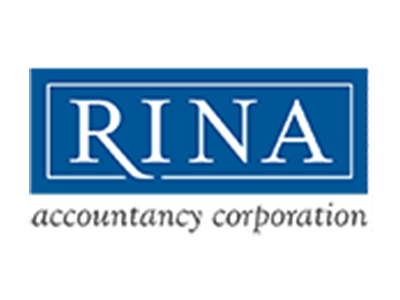Are You Expecting a Large Tax Bill This Year?
By Chris DeMay and Roshan Weeramantry | RINA
There still may be time to invest your 2018 capital gains into an opportunity zone. Opportunity Zones serve as a powerful vehicle to defer capital gains, receive tax breaks and ultimately increase after-tax IRR (Internal Rate of Return).
The Opportunity Program was released as part of the 2017 Tax Cuts and Jobs Act. The new law generally provides for the temporary deferral and partial exclusion of gross income on gains reinvested in a
“qualified opportunity fund” as well as the permanent exclusion of gains from the sale or exchange of an investment held for at least 10 years in such a fund.
An Opportunity Zone (OZ) is an economically-distressed community where new investments, under certain conditions, may be eligible for preferential tax treatment. The list of opportunities can be found at this website.
Opportunity zone investments offer greater flexibility to the popular 1031 exchanges that are used to defer tax on appreciated real or tangible property. A 1031 exchange requires reinvestment into property of a like-kind, requires identification within 45 days of sale, and both principal and the gain must be invested into the new property; while the OZ investment can include personal property, stock, and partnership interests, no 45-day requirement, and only the gain must be invested into the OZ.
Investing in an Opportunity Zone yields three types of attractive benefits: 1) Capital gains tax deferment 2) Capital gains tax reduction and 3) Capital gains tax elimination.
Capital gains tax deferment
Using cash proceeds in the amount equal to the capital gain to reinvest in a Qualified Opportunity Zone (QOZ) gives investors a deferment on paying those capital gains taxes, either until that new interest is sold or until the year 2026, whichever comes first.
Capital gains tax reduction
To get a 15% reduction in paying capital gains tax from the sale of old property, an investor must use profits from that sale to reinvest in an QOZ within 180 days of that sale. Further, they must finalize that new QOZ transaction before the end of 2019 and hold onto that investment through 2026. This fulfills the new tax code’s seven-year requirement. The 15% reduction is reduced to 10% if the gains are invested into the QOZ by 2021 and held until 2026.
Capital gains tax elimination
In order to completely eliminate capital gains tax, investors must purchase a new investment in a QOZ (using their previous capital gain cash proceeds) and they must hold that investment for ten years or longer. The capital gains tax is eliminated on the future sale of the investment. In other words, one would still have to pay deferred and potentially trimmed capital gains tax on their old investment in 2026, but when that Opportunity Zone investment is sold, if it were held for ten years or longer, no capital gains tax would be due on the appreciation in excess of their original investment.
Important Point – Eligible gain must be rolled-over within 180 days of the date of the sale of the asset to qualify for the deferral. The tax regulations clarified that both short-term and long-term capital gains shall be the only source of investment. The 180-day period with respect to any eligible gain begins on the trade date. For a partner or an S corporation shareholders’ distributive gain, the trade date is the last day of the tax year. Where large gain distributions are expected from your flow-through investments, you will have until the end of June 2019 to reinvest your gain into the Opportunity Zone to defer your distributed 2018 gain.
From a financial planning perspective, we believe that Qualified Opportunity Zone (QOZ) investments can be used in the estate planning process in conjunction with trusts, donor advised funds and other legacy planning strategies. The deferral can be a valuable component of the overall strategy, but the elimination of capital gains tax on QOZ investments held for ten years is the most attractive part of the tax benefit. Because of this rule, investors should consider avoiding the liquidation of these investments early to avoid losing these substantial benefits.
The illiquid nature of Qualified Opportunity Funds (QOFs) require that investors will have to be extremely selective about how much they allocate in their overall portfolios, especially if funding comes from capital gains as a result of liquid securities. To the extent an investor has already realized capital gains that need to be reinvested, QOFs should be among the options considered for any new private investments. While the tax benefits are attractive it is critical to invest with reputable fund sponsors with a demonstrated track record and a roadmap for creating liquidity and returning capital to investors. This should be a part of any investor’s due diligence process when considering an investment in QOFs. While many QOFs are focused on real estate, there are additional funds planning to focus on various types of infrastructure i.e. renewable energy. Additional investment options like infrastructure and development projects have the potential to offer diversification to investors outside of traditional real estate and may also have wide appeal amongst investors wishing to align themselves with more Socially Responsible Investments.
The information above does not constitute tax or legal advice. Before proceeding, you should always evaluate your own tolerance for risk and consult with your tax professional and competent legal counsel.
Advisory services provided through RINA Wealth Management Services LLC, A Registered Investment Advisor.





